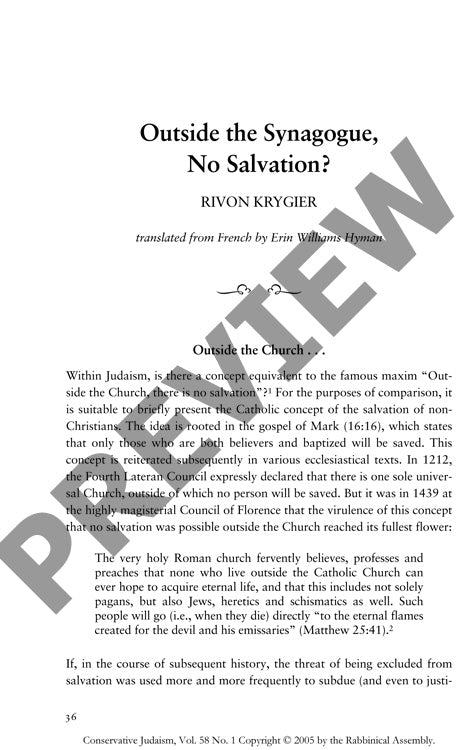Outside the Synagogue No Salvation
Couldn't load pickup availability
Can non-Jews achieve salvation according to Jewish theology? The question echoes Christianity's famous doctrine of "outside the Church, no salvation," yet reveals profound tensions within Jewish thought. A systematic analysis of rabbinic literature, from Talmudic sources through medieval commentaries to modern interpretations, uncovers two competing theological currents. One strand insists that divine revelation through Torah is essential for salvation, while another accepts righteous gentiles who follow the seven Noahide commandments as worthy of divine grace, regardless of their theological commitments. Medieval authorities, particularly Ha-Meiri, crafted innovative categories like "nations endowed with a religious code of conduct" to differentiate monotheistic religions from ancient idolatry, effectively expanding salvation's scope. Through careful examination of these halakhic sources, with special attention to Maimonides' codification of universal religious law, a pattern emerges: while Judaism retained certain exclusivist elements, rabbinic authorities increasingly emphasized ethical conduct over theological adherence as the primary path to righteousness for non-Jews. This evolution continues in contemporary Jewish thought, which increasingly recognizes secular moral frameworks as valid routes to salvation, suggesting Judaism's universalist tendencies may transcend traditional religious boundaries. These findings illuminate both historical Jewish-gentile relations and modern interfaith dialogue.

More Information
-
Physical Description
-
Publication Information
Published
ISBN
-
Publication Credits
Rivon Krygier

